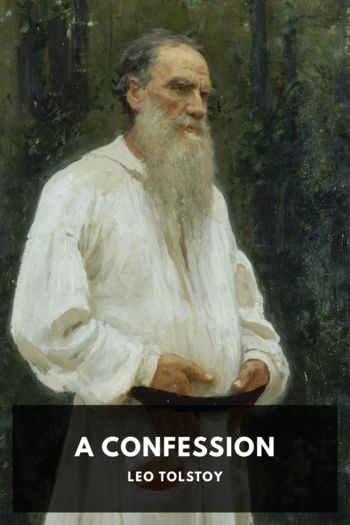Short Fiction by Leo Tolstoy (book reader for pc TXT) 📕

- Author: Leo Tolstoy
Book online «Short Fiction by Leo Tolstoy (book reader for pc TXT) 📕». Author Leo Tolstoy
“Well, but how do you like the opera nowadays?” asked Delesof.
“Bosio is good, very good,” was his reply, “exquisite beyond words; but she does not touch me here,” he said, pointing to his sunken chest. “A singer must have passion, and she hasn’t any. She is enjoyable, but she doesn’t torture you.”
“Well, how about Lablache?”
“I heard him in Paris, in The Barber of Seville. Then he was the only one, but now he is old. He can’t be an artist, he is old.”
“Well, supposing he is old, still he is fine in morceaux d’ensemble,” said Delesof, still speaking of Lablache.
“Who said that he was old?” said Albert severely. “He can’t be old. The artist can never be old. Much is needed in an artist, but fire most of all,” he declared with glistening eyes, and raising both hands in the air. And, indeed, a terrible inner fire seemed to glow throughout his whole frame. “Ah, my God!” he exclaimed suddenly. “You don’t know Petrof, do you—Petrof, the artist?”
“No, I don’t know him,” replied Delesof with a smile.
“How I wish that you and he might become acquainted! You would enjoy talking with him. How he does understand art! He and I often used to meet at Anna Ivánovna’s, but now she is vexed with him for some reason or other. But I really wish that you might make his acquaintance. He has great, great talent.”
“Oh! Does he paint pictures?” asked Delesof.
“I don’t know. No, I think not; but he was an artist of the Academy. What thoughts he had! Whenever he talks, it is wonderful. Oh, Petrof has great talent, only he leads a very gay life! … It’s too bad,” said Albert with a smile. The next moment he got up from the bed, took the violin, and began to play.
“Have you been at the opera lately?” asked Delesof.
Albert looked round, and sighed.
“Ah, I have not been able to!” he said, clutching his head. Again he sat down by Delesof. “I will tell you,” he went on to say, almost in a whisper. “I can’t go: I can’t play there. I have nothing, nothing at all—no clothes, no home, no violin. It’s a wretched life—a wretched life!” he repeated the phrase. “Yes, and why have I got into such a state? Why, indeed? It ought not to have been,” said he, smiling. “Akh! Don Juan.”
And he struck his head.
“Now let us have something to eat,” said Delesof.
Albert, without replying, sprang up, seized the violin, and began to play the finale of the first act of Don Juan, accompanying it with a description of the scene in the opera.
Delesof felt the hair stand up on his head, when he played the voice of the dying commander.
“No, I cannot play tonight,” said Albert, laying down the instrument. “I have been drinking too much.” But immediately after he went to the table, poured out a brimming glass of wine, drank it at one gulp, and again sat down on the bed near Delesof.
Delesof looked steadily at Albert. The latter occasionally smiled, and Delesof returned his smile. Neither of them spoke, but the glance and smile brought them close together into a reciprocity of affection. Delesof felt that he was growing constantly fonder and fonder of this man, and he experienced an inexpressible pleasure.
“Were you ever in love?” he asked suddenly. Albert remained sunk in thought for a few seconds, then his face lighted up with a melancholy smile. He bent over toward Delesof, and gazed straight into his eyes.
“Why did you ask me that question?” he whispered. “But I will tell you all about it. I like you,” he added, after a few moments of thought, and glancing around. “I will not deceive you, I will tell you all, just as it was, from the beginning.” He paused, and his eyes took on a strange wild appearance. “You know that I am weak in judgment,” he said suddenly. “Yes, yes,” he continued. “Anna Ivánovna has told you about it. She tells everybody that I am crazy. It isn’t true, she says it for a joke; she is a good woman, but I really have not been quite well for some time.” Albert paused again, and stood up, gazing with wide-opened eyes at the dark door. “You asked me if I had ever been in love. Yes, I have been in love,” he whispered, raising his brows. “That happened long ago; it was at a time when I still had a place at the theatre. I went to play second violin at the opera, and she came into a parquet box at the left.”
Albert stood up, and bent over to Delesof’s ear. “But no,” said he, “why should I mention her name? You probably know her, everybody knows her. I said nothing, but simply looked at her: I knew that I was a poor artist, and she an aristocratic lady. I knew that very well. I only looked at her, and had no thoughts.”
Albert paused for a moment, as though making sure of his recollections.
“How it happened I know not, but I was invited once to accompany her on my violin. … Now I was only a poor artist!” he repeated, shaking his head and smiling. “But no, I cannot tell you, I cannot!” he exclaimed, again clutching his head. “How happy I was!”
“What? did you go to her house often?” asked Delesof.
“Once, only once. … But it was my own fault; I wasn’t in my right mind. I was a poor artist, and she an aristocratic lady. I ought not to have spoken to her. But I lost my senses, I committed a folly.





Comments (0)